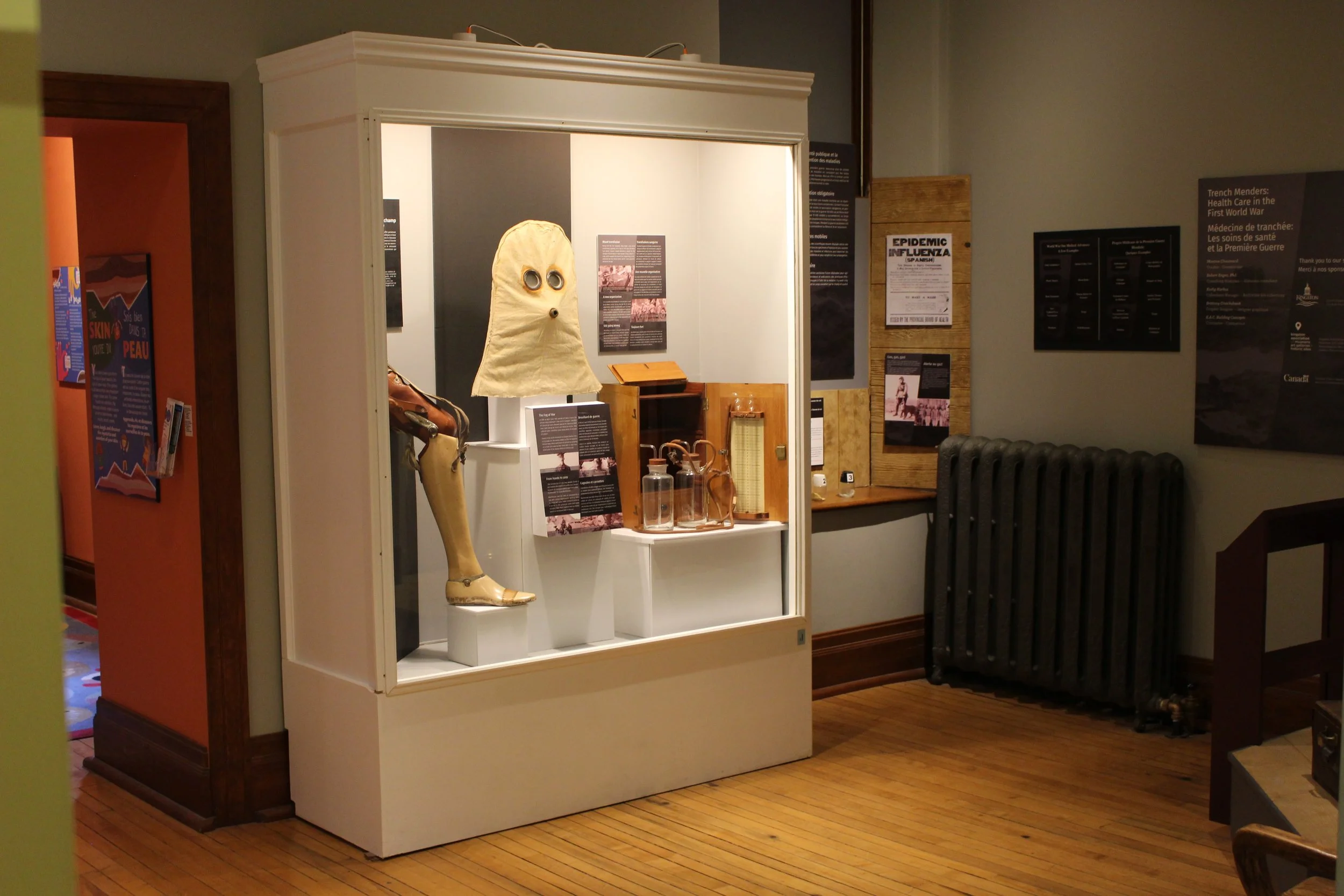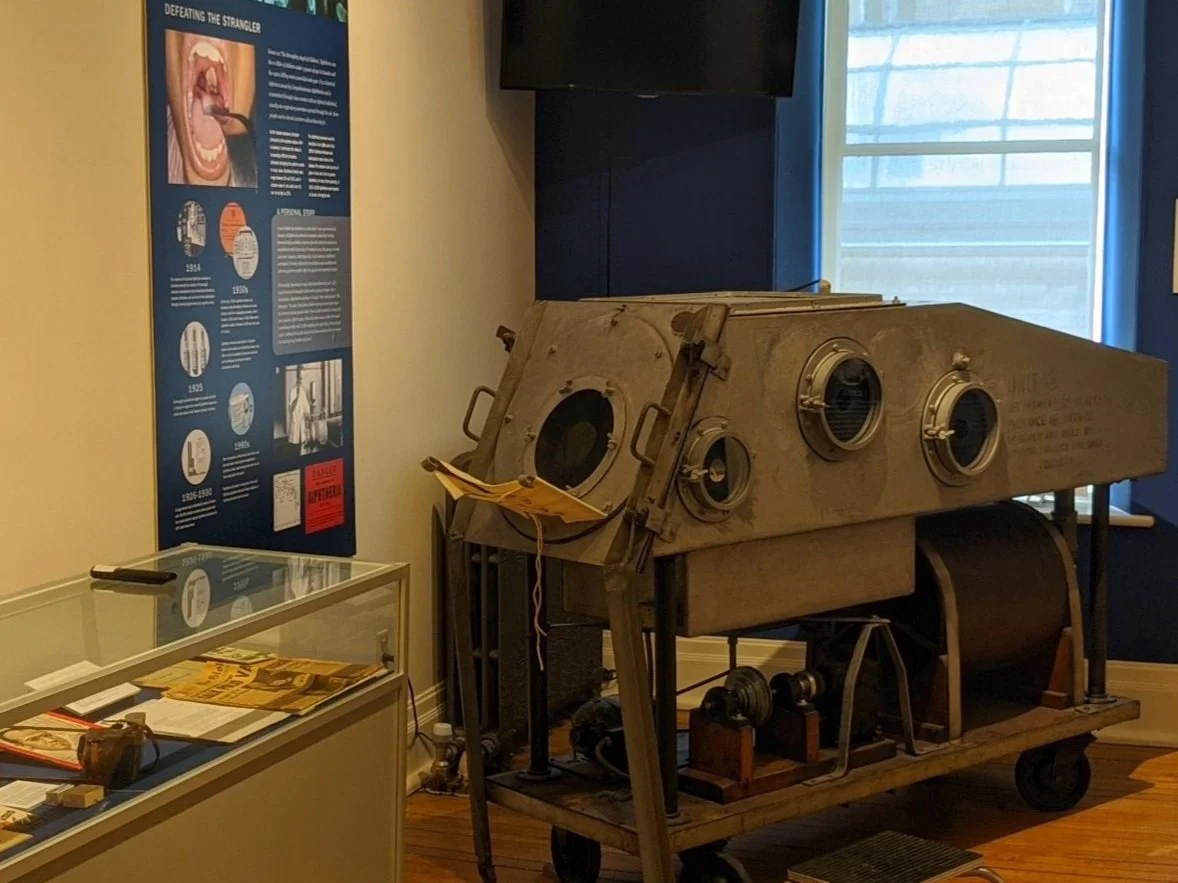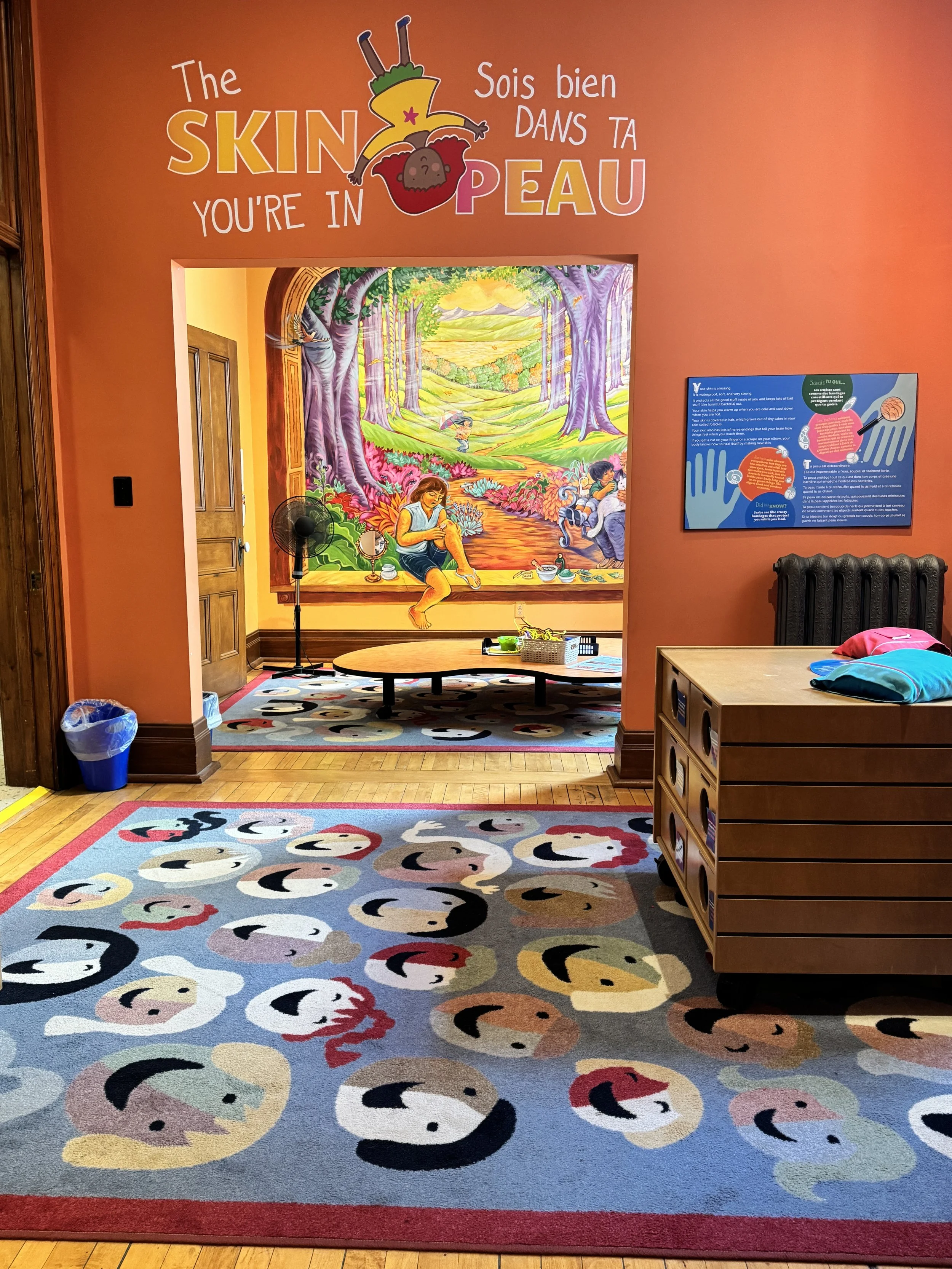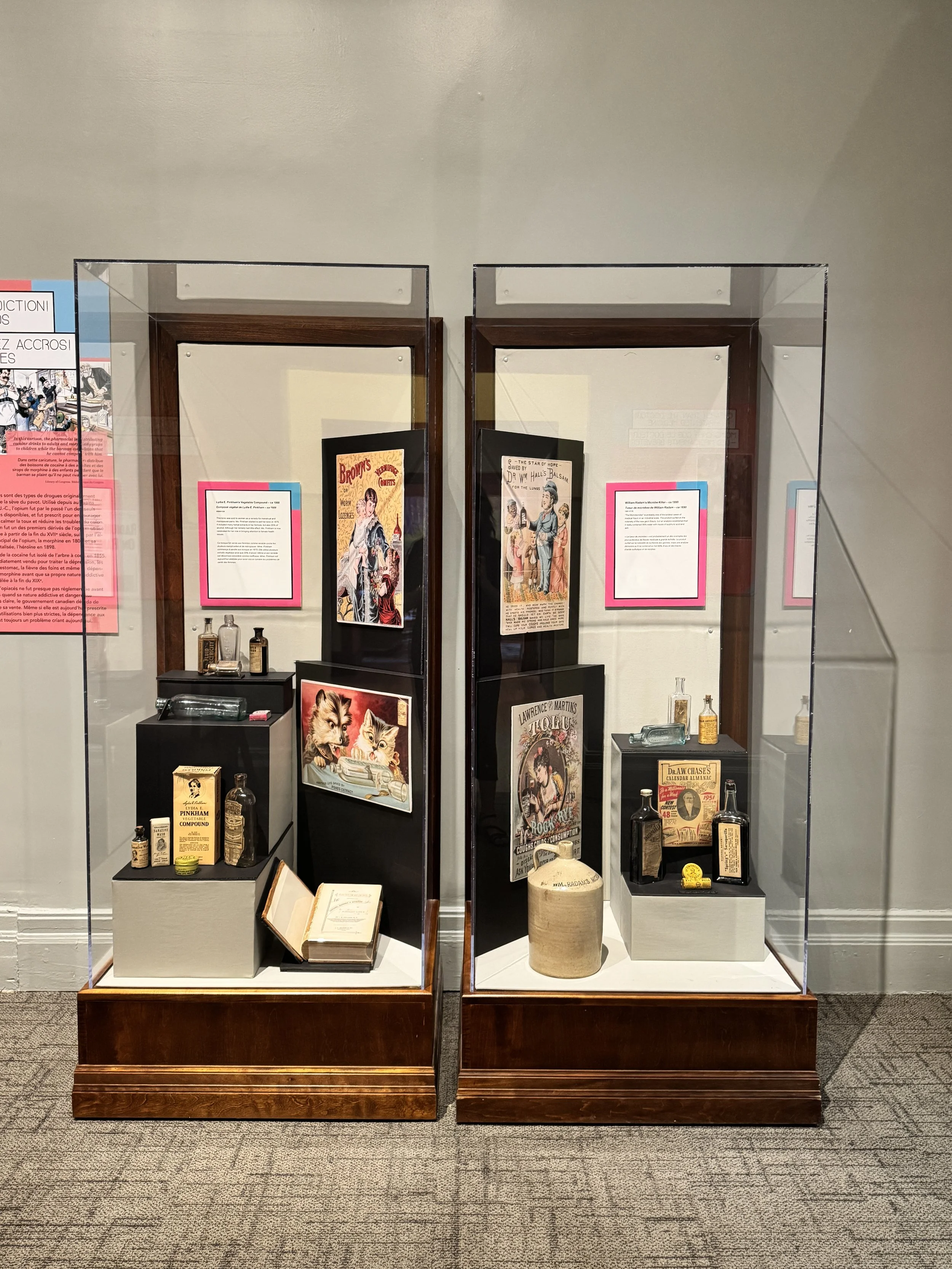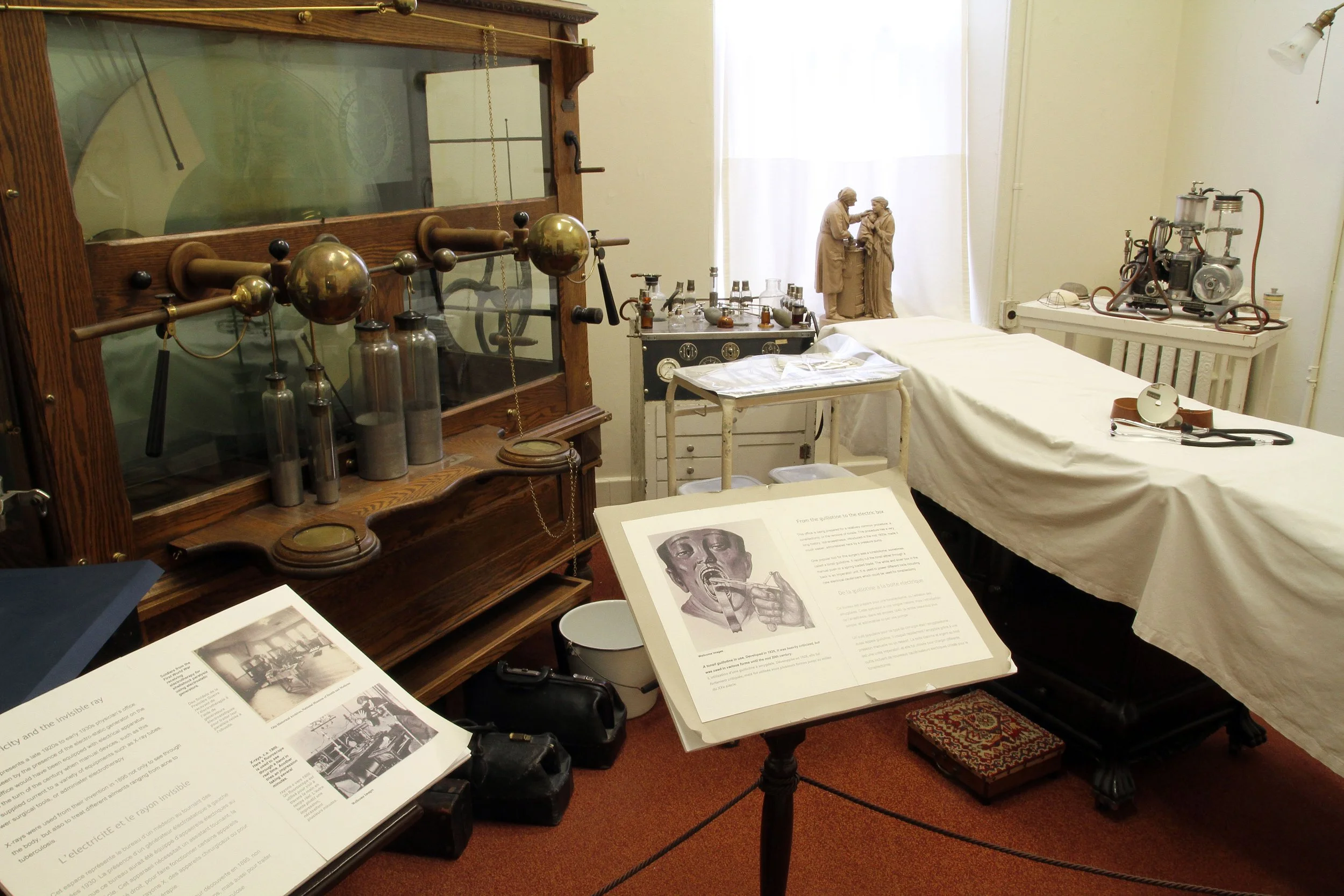PERMANENT EXHIBITS
Discover the stories behind the artifacts
The Canadian Museum of Health Care’s exhibits explore the rich and evolving story of health and medicine in Canada. From groundbreaking innovations and public health milestones to personal stories of care and resilience, our galleries highlight the people, tools, and ideas that have shaped health care over the centuries. Our permanent exhibitions are updated on an ongoing basis to reflect new research, rotating artifacts, and community perspectives—ensuring that each visit offers something new to discover. Whether you're exploring surgical advancements, vaccine breakthroughs, or the history of nursing education, there’s always more to learn and experience at the Canadian Museum of Health Care.
The 19th century stands as one of the most pivotal eras in the history of Western medicine. It was during this time that essential scientific knowledge emerged—and long-standing theories that had guided health care for centuries were overturned.
Through this exhibition, you will explore landmark discoveries in surgery, pharmacology, bacteriology and diagnostic methods.
This exhibit is in French and English.
The Century
An engaging historical exhibit showcasing the development of nursing training in Kingston—from its early volunteer beginnings, through rigorous apprenticeship training, to its legacy of professional care. It highlights the daily life, responsibilities, traditions, and contributions of nursing students at KGH from 1886 to 1974.
This exhibit traces the shift from informal care by local women to a rigorous, hospital-based training program by highlighting student life, uniforms, and the vital roles graduates played in public health and wartime service. Through artifacts and stories, the exhibit honours the dedication and professionalism of over 3,000 nurses trained at KGH.
For Service to Humanity
Trench Menders explores the vital role of health care personnel during the First World War. The exhibit highlights the work of the Canadian Army Medical Corps and the Canadian Army Nursing Corps, honouring those who served as nurses, physicians, stretcher-bearers, and dentists. You’ll learn about the unique medical challenges of WWI alongside critical medical innovations in areas such as blood transfusion and psychiatric care.
This exhibit is in French and English.
Trench Menders
This exhibit chronicles how immunizations against smallpox, diphtheria, poliomyelitis, and whooping cough drove dramatic declines in disease throughout the twentieth century, underlining the high societal costs of epidemics and the transformative role of vaccination in public health. It highlights Canada’s significant contributions to vaccine development and use, explores the country's historical experiences with these illnesses, and celebrates its scientific legacy. Originally unveiled in November 2013, the exhibit was updated in late 2022 to include new content on mRNA vaccines and their rapid rise during the COVID‑19 era, offering a historical perspective on modern innovation.
Vaccines & Immunizations
This interactive gallery offers a lively, hands‑on space where young visitors and families can explore the topic of body, and the world of medical care in a playful, interactive environment. Inside, children can enjoy themed activity stations designed to spark curiosity and learning about health care, all while engaging with exhibits at their own pace. Our Children’s Gallery makes the Museum a memorable destination for young minds and families alike.
This exhibit is in French and English.
Janet & Walter Rosser Children’s Gallery
This exhibition explores the fascinating history of health products and treatments that were once widely promoted and embraced, despite limited scientific evidence. From miracle tonics to curious medical devices, you will discover how people throughout history have sought healing and how that healing was regulated (or not regulated!) and marketed to them and explore changing ideas of health, trust, and consumer culture.
This exhibit is in French and English.
Selling Hope
Step into a 1930s-era doctor’s treatment room, modeled after the practice of Dr. Charles Bird and his son Dr. Godfrey Bird in Gananoque, Ontario. This immersive exhibit explores the everyday world of general medical practice in early 20th‑century Canada—including the emergence of electricity and X‑ray technology as transformative forces in diagnosis and treatment. A centerpiece of the display is a rare early‑1900s electrostatic generator, used for pioneering therapies and imaging demonstrations in the era's emerging electrotherapy practices.
This exhibit is in French and English.
Electricity & The Invisible Ray
One of the most recent exhibits of the Museum, Tooth Be Told is traces the changes in dental attitudes and technologies over time, from the early days of barber-surgeons and tooth pullings to the origins of anaesthesia and the commercialization of dental health.
This exhibit highlights fascinating artifacts from the Ralph and Olga Crawford Dental Collection. Explore the evolution of tooth extraction keys, learn the many materials that teeth have been replaced with, and see the Museum’s famous set of deer tooth dentures.
This exhibit is in French and English.




